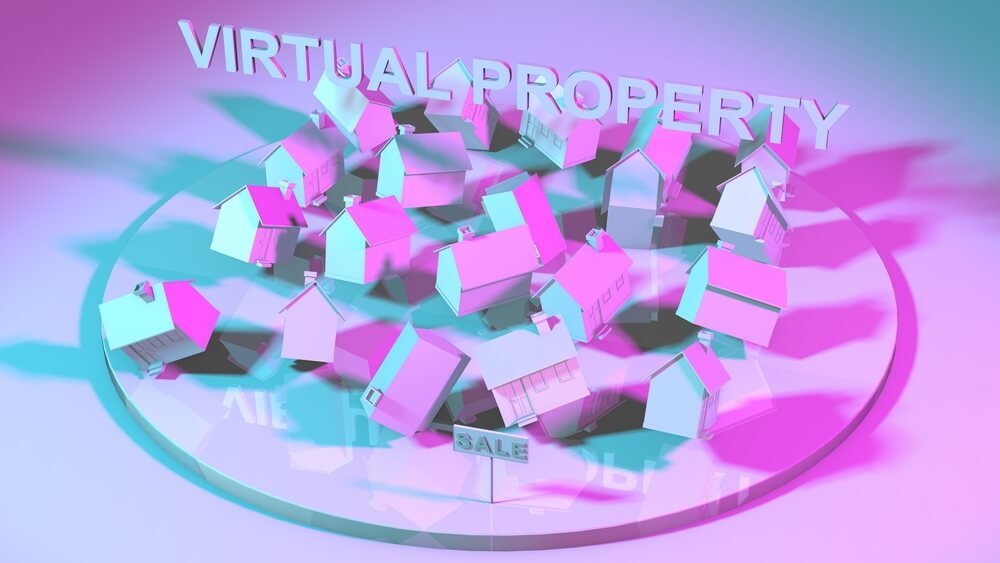The Truth About Metaverse Real Estate Scams
Table of Contents:
2021 saw a huge boom in metaverse real estate sales. Facebook’s announcement that they would be rebranding to Meta was the catalyst for this, but the huge increase in prices that it precipitated continued into early 2022 before finally beginning to drop. Unfortunately, this brought with it a host of scammers and hackers wanting to exploit the new trend for their own gains. As well as these obvious tricksters, there have also been those who believe that metaverse real estate itself is a scam. But is this really true? Read on to find out as we look at the reality of metaverse real estate scams.
Genuine scams
Phishing scams have hit several investors in recent months. These scams involve individuals who have bought virtual property being persuaded to click on a link, for example in an email, that seems completely legitimate but actually takes the user to a website that mimics a metaverse platform like Decentraland. However, when the customer’s login details are entered, the hackers get access to their details, which they use to empty the digital wallet of funds and NFTs. Phishing sites are even being sold on the dark web for anything from $400 to $5000. So, while NFT trading site OpenSea and others are legitimate, you have to be very careful about the URL in your search bar to make sure that what you’re looking at isn’t a fake. By the time you realize what has happened, it could be too late – once your money and NFTs have been taken, it’s highly unlikely that you will get them back due to the one-directional nature of the blockchain.
The decentralized metaverse also causes issues for those who have had their property stolen. There is no central authority you can go to claim your money back, and no one is overseeing the transactions. This lack of regulation makes the metaverse like a new frontier – exciting and dangerous, the perfect place for scammers. If you have given away your login details, then criminals can simply open your wallet and take whatever is there without anyone to help get it back. Some have tried, but most have experienced frustration when trying to retrieve funds. Platforms like OpenSea and The Sandbox claim that there’s nothing they can do since it is the users themselves who oversee and conduct transactions. They recommend taking more security precautions, but for many it’s too late. Digital wallet provider, MetaMask, has recently taken steps towards helping their customers with this, joining with Asset Reality to deal customer complaints and investigate scams. Other sites are doing things to prevent phishing as well, with OpenSea preventing people from buying or selling NFTs which have been reported stolen and banning accounts connected to this kind of activity. Decentraland and The Sandbox also have people working to identify and remove phishing sites and other fraudulent impersonators. However, much more of this infrastructure will need to be introduced to make investors feel more confident about their purchases going forwards.
Speculation
While metaverse real estate is a risk, most of it isn’t a scam per se. Although the metaverse spaces available right now do allow you to build and customize your own piece of the virtual world for whatever purpose you want, be it to hold virtual events or just meet with your friends in a private virtual arena, the capabilities and sophistication are no more advanced than the online worlds of Minecraft or Fortnite. It may be a surprise, then, to learn that plots of land in the metaverse are selling for crazy sums, anywhere from the tens of thousands to the hundreds of thousands and beyond (see our Mazer article on the reasons to buy metaverse real estate). Despite the boom of 2021, right now, buying metaverse land is a gamble – there’s no telling whether or not its value will go up or completely crash. Some people buy the land to make something on it, rather than for resale. Many want to develop their own games for other users to come and play. But again, once it has been built, there’s nothing to guarantee that people will like it. Many also like the decentralized nature of platforms like Decentraland, but what if governments eventually decide to intervene and start regulating the metaverse and taking control of things. The decentralization is lost, and you can’t freely trade your space anymore. In the end, it’s all just speculation.
A scam or just bad business?
The metaverse is such an exciting prospect with so much potential that many people want to invest in it. However, not everyone who enters this space will be successful. One example of this is NeoNexus. This metaverse project had amassed 13,000 members on its discord channel, had sold over 4000 NFTs for virtual property, and had raised several million dollars of investment through the Solana cryptocurrency. Then, all of sudden, in March 2022, after drops in the price of SOL, they declared that they would no longer be continuing with the project. This left a lot of investors out of pocket but also created a bad impression for some who would then use this to declare that metaverse real estate is a scam. But maybe this was just an example of a team who didn’t have the right plan or the courage to persevere with a project through difficult times. Either way, people lost out, so this is something to be wary of when approaching metaverse property investments. Ultimately, it is difficult to know whether a company setting up in the metaverse will have any success as the landscape is still completely unknown.
The Unknown
The fact that we don’t know where the metaverse will go is both the most exciting and the scariest thing about it. It offers multiple opportunities, but investors could easily put their money into the wrong thing and end up with nothing. It’s basically gambling at this stage. Not only are you gambling on the piece of virtual real estate, but you are also taking a risk on the particular metaverse platform you pick. There isn’t simply one metaverse as such right now, but rather a number of different platforms offering metaverse technologies. In the future, many envision the metaverse as one connected space, but that isn’t the case right now and, until it is, you have to choose one or more to buy land within. If the platform that contains your metaverse real estate fails, you could lose it completely.
At this point, there’s no way to know which metaverse platforms might succeed or fail. You could go with the most popular ones, such as Decentraland or The Sandbox, but they look cartoony and pixelated and much of the space is empty and unused. Some say that the real scam is that companies are being told that buying land in places like this is a good future investment, when very few people actual spend any time there. So far, it’s mostly gamers and tech lovers playing around, but there isn’t really any substance. Buying real estate in places like this might eventually turn out to be worthless as they are superseded by more useful and better-looking virtual platforms. More business-oriented metaverse spaces might be the ones that are more successful in the end as they offer everyday utility. XR Wizards, for example, has built a platform that provides metaverse solutions for business. It has a much more professional and real-world look than most other metaverse platforms currently available. These are the kind of metaverse worlds that have the potential to create lasting and positive change in the future and are more likely to bring in serious business investors. Most other platforms simply feel gimmicky right now.
Final Thoughts
While there certainly are metaverse real estate scams out there, perhaps the real scam is what some places are selling as ‘the metaverse’. It is still a niche market, with only around 25,000 crypto wallets having purchased metaverse real estate, and it could simply amount to nothing in the end. Of course, with the amount of work that’s gone into it, this is unlikely, but it’s certainly possible that some metaverse platforms which have received lots of investment might turn into nothing and eventually collapse. So, like with any investment, there is the possibility of losing your money, but there is also a lot to gain for those who make the right choice. Ultimately, it is important to do thorough research, both to make sure that you aren’t the victim of a scam to steal your NFTs and to avoid investing in something which has no future prospects. Approach it with a healthy amount of caution and strong barriers in place to protect your investments, and you could take advantage of the metaverse real estate market to push your company beyond its competitors and become a successful metaverse business.
Read also: Metaverse Scams And How To Avoid Them
What is the risk associated with Metaverse real estate?
One of the biggest risks associated with Metaverse real estate is the prevalence of scams and hackers looking to exploit this new trend. Phishing scams have hit several investors in recent months, involving the user being persuaded to click on a link that takes them to a website that mimics a Metaverse platform, and when the customer’s login details are entered, the hackers get access to their details, which they use to empty the digital wallet of funds and NFTs.
Can Metaverse real estate scams be prevented?
While some platforms such as OpenSea, The Sandbox, and Decentraland are doing things to prevent phishing and fraudulent impersonators, much more infrastructure is needed to make investors feel more confident about their purchases going forward. Platforms such as Digital wallet provider MetaMask have recently taken steps towards helping their customers deal with customer complaints and investigate scams.
Why is buying Metaverse land considered a gamble?
Although the Metaverse spaces available right now do allow you to build and customize your own piece of the virtual world for whatever purpose you want, the capabilities and sophistication are no more advanced than the online worlds of Minecraft or Fortnite. Despite the boom of 2021, right now, buying Metaverse land is a gamble. There’s no telling whether or not its value will go up or completely crash.
Is Metaverse real estate a scam or just bad business?
While some people may have lost money due to the failure of some Metaverse projects, it is difficult to know whether a company setting up in the Metaverse is a scam or just bad business. The Metaverse is such an exciting prospect with so much potential that many people want to invest in it, but not everyone who enters this space will be successful. One example of this is NeoNexus, a Metaverse project that declared they would no longer be continuing with the project after drops in the price of SOL, leaving many investors out of pocket.

Author: Rafał Siejca
Rafal has over twenty years of corporate experience, including roles at Millennium Bank, Comarch, and leading software teams at PZU, one of Europe’s largest insurance companies. As one of Poland’s few true VR experts with a decade of experience, he ensures timely, high-quality project delivery as CEO and CTO.










